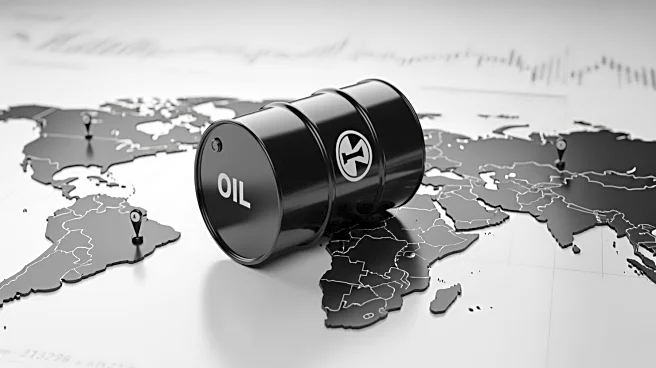What's Happening?
Lukoil, one of Russia's largest energy companies, has announced plans to sell its foreign assets following the imposition of U.S. sanctions. These sanctions are part of a broader effort by the U.S. to pressure
Russia to end its military actions in Ukraine. The sanctions target Lukoil and Rosneft, Russia's two largest oil companies, which are significant contributors to the Kremlin's war efforts. Lukoil is expected to divest three refineries and approximately half of its 5,000 petrol stations worldwide, which could lead to a substantial decrease in its revenues and profits.
Why It's Important?
The sanctions against Lukoil represent a significant escalation in economic pressure on Russia, aiming to weaken its financial capacity to sustain military operations in Ukraine. This move could have wide-ranging implications for global energy markets, particularly in Europe, where Lukoil has a substantial presence. The divestment of foreign assets may lead to shifts in market dynamics, affecting energy prices and supply chains. Additionally, the sanctions highlight the geopolitical tensions surrounding energy security and the reliance of certain European countries on Russian energy exports.
What's Next?
Lukoil has until November 21 to comply with the U.S. sanctions by winding down its international operations. The company may seek extensions to facilitate the sale of its assets. Meanwhile, European countries, particularly those heavily reliant on Russian energy, may seek exemptions or additional time to adjust to the new sanctions regime. The situation could lead to increased diplomatic engagements as countries navigate the economic and political ramifications of the sanctions. The outcome may also influence future U.S. and allied strategies in addressing the Ukraine conflict.










